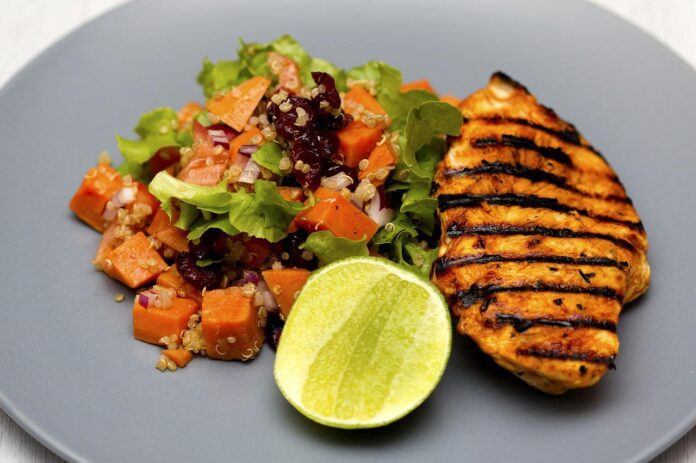Many people hunt for a “magic pill” to add a life-changing element to their fitness journey in order to attain their health and fitness goals. The actual solution, however, rests in simple habits and environmentally friendly food choices. Fortunately, a typical kitchen is full of treatments and procedures that can help you live a long and healthy life. If you’re too busy looking in the wrong direction, here’s a list of swaps you can make to start incorporating some Desi deliciousness into your diet.
Coconut for Avocado
Coconut is a great superfood for revving up your metabolism because it’s high in medium-chain triglycerides, fiber, and lauric acid. Coconut, like its exotic healthy fat counterpart avocado, contains potassium and magnesium to support heart health and is high in zinc and iron to promote lustrous hair. Coconut’s lauric acid has antiviral, antifungal, and antibacterial qualities that can help boost your immunity, especially as the seasons change. Coconut’s fatty acid content also aids in the promotion of healthy cholesterol. Add this healthy fat to your morning routine for better gut health if you’re suffering from poor digestion or irritable bowel syndrome.
Amaranth for Quinoa
Amaranth, also known as Ramdana or Rajgira, is a pseudo-cereal that is one of the world’s most nutritious grains. It’s a terrific source of protein, just like quinoa, but it won’t break the bank. It’s also a good source of iron for vegans and vegetarians, and it’s high in magnesium, which can help you feel more energized and battle weariness. Amaranth is a great meal option for weight watchers because of the variety of nutrients it contains. It’s gluten-free and high in antioxidants, which assist the body reduce inflammation.
Sabja for Chia Seeds
Sabja seeds, also known as sweet basil seeds, are a nutrient powerhouse for vegans. For its cooling properties, soaked sabja in its gelatinous form is widely used in drinks during the summer. Sabja is high in fiber, which aids in blood sugar regulation and increases fullness and satiety. The pectin in soaking sabja functions as a prebiotic, assisting in the growth of beneficial bacteria in the stomach. According to studies, patients who drank 30 grams of sabja per day for four weeks saw a reduction in cholesterol levels. It is high in alpha-linolenic acid (omega-3), which aids in the reduction of inflammation in the body. It has a higher content of fibre, calcium, iron, and magnesium than chia seeds.
Kanji for Kombucha
Kanji is a traditional fermented and tarty probiotic super drink made with the red richness of carrots, including the purplish tinge of kali gajar or beetroot, and a kick of mustard seeds that kick off the pickling and fermentation process by naturally occurring bacteria and yeast found in carrot skin that turn natural sugars in carrots into a traditional fermented and tarty probiotic super drink. If you’re not sure what probiotics are, they’re live bacteria that are taken through fermented foods and provide a variety of health advantages. Kombucha has been marketed under the similar probiotic designation in recent years, but unlike Kanji, it frequently contains sugar. Kanji has been consumed in Indian subcontinent for centuries to promote digestion and is fortified with potassium, vitamin C, vitamin A, manganese, and B vitamins.
Moringa for Kale
Moringa or drumstick leaves are becoming more popular in the West, but we’ve had them in our backyard for years! The seeds, flowers, leaves, and stems of the drumstick plant are all edible. In sambar, the fruit is common, but the leaves are a nutritional powerhouse. Iron, copper, selenium, Vitamin A, Vitamin E, and Omega-3s are all found in them, and they all aid to increase immunity. It also includes various anti-inflammatory and antioxidant chemicals, as well as being a complete protein source, containing all nine essential amino acids. Above all, when compared to Kale, moringa has nearly twice the protein and three times the iron.














![Technical Aspects of 844 Area Code in 2024 [Detail Guide] 844 Area Code](https://articleify.com/wp-content/uploads/2024/01/844-Area-Code-150x150.jpg)














